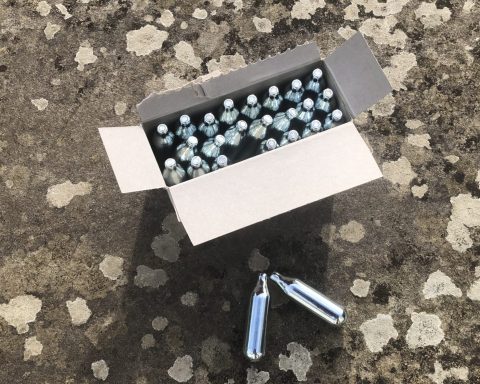 Dr Sheonad Laidlaw is a qualified GP, Chair of the Scottish Council for Muscular Dystrophy UK and has a daughter with spinal muscular atrophy (SMA) type 2.
Dr Sheonad Laidlaw is a qualified GP, Chair of the Scottish Council for Muscular Dystrophy UK and has a daughter with spinal muscular atrophy (SMA) type 2.
Recognising and supporting patients with rare and complex neuromuscular conditions presents acute challenges for GPs. The Royal College of General Practitioners have worked with Muscular Dystrophy UK to produce a new set of online tools to help bridge the gap between primary care and the specialised services available.
More than 60 progressive neuromuscular conditions, affect 70,000 children and adults in the UK. Recognition of neuromuscular conditions is improving, but many patients still experience long delays in diagnosis as early symptoms can be non-specific. Symptoms may include: muscle weakness resulting in difficulty with climbing stairs or lifting heavy objects; muscle stiffness or cramps; or fatigue. If a neuromuscular condition is considered, prompt referral to a neurologist is necessary. After diagnosis GPs, as part of a multi-disciplinary team, are integral in the care of the patient and making prompt referrals to a broad range of local and specialised services. As GPs we will often be the first port of call for a patient and therefore should be confident in managing acute complications as the condition progresses. Recognition of the psychosocial impact on the condition on the patients and their families is important with a focus on quality of life paramount.
My daughter, who was born in 2009, has spinal muscular atrophy (SMA) type 2. At eleven months I noticed that she wasn’t weight bearing, that she had stopped crawling, and that when waving at people her arm would drift down. I was lucky in that I had contacts at the local Children’s Hospital and my daughter was seen promptly by a neurologist. The possibility of SMA was not discussed with me until three months later, however, and was confirmed after genetic testing. The condition is physically disabling and she has been wheelchair dependent since fifteen months old. She is at risk of life-threatening respiratory infections and has a scoliosis and hip subluxation, but she is cognitively able and bright. Led by a community paediatrician, my daughter has a range of health professionals involved in her care, including physicians, surgeons, orthotics, physiotherapists, occupational therapists and wheelchair services. There is no cure for SMA but the right treatment and support is vital to effectively managing the condition.
A typical patient pathway for someone with a neuromuscular condition will include services funded and delivered locally and at specialist tertiary centres. Neuro-respiratory and Cardiology input and follow-up are essential. Many neuromuscular conditions can weaken respiratory muscles, leaving those affected susceptible to lower respiratory tract infections. When respiratory function deteriorates acutely or chronically, referral for specialist respiratory care, physiotherapy and medical equipment, for example cough assists, is necessary. Heart function may need to be monitored too. For many people any cardiac problems will be slight, but arrhythmias or reduced cardiac function may need pharmacological intervention.
Local neuromuscular specialist teams, which include care advisers, play an important role in liaising between primary and specialist care. However, as the gateway for patients to community services, it is important that GPs and community health professionals have an awareness of where to refer for the day-to-day support this group of patients require. Community rehabilitation services including physiotherapy, occupational therapy, hydrotherapy and wheelchair services are also absolutely vital. Finally, given the progressive nature of these conditions it’s important to be aware of the emotional effects the condition can have. Referring patients and families to support groups, organisations, and social services can help many come to terms with and manage the complexity of their condition.
Muscular Dystrophy UK received a Department of Health funding in 2013 to run Bridging the Gap, a project bringing together patients, clinicians, health professionals, and specialised and local NHS commissioners to improve neuromuscular care for both children and adults. A key aim of this initiative was to increase awareness of neuromuscular disorders among primary healthcare professionals. The charity has been working closely with expert neuromuscular specialist consultants, physiotherapists, care advisors and GPs and the Royal College of General Practitioners to develop an e-learning training module. This has been designed to help GPs understand the spectrum of genetic neuromuscular disease. This course is concise and informative, easy to use and identifies the key presenting features and management issues for these conditions. The importance of a holistic assessment of the patient and the family, including their psychosocial care and the recognition of the complexities of being a carer, was an important learning point for me.
An online map of both primary and tertiary neuromuscular services, the ‘Neuromuscular Support Hub’, has also been launched, helping patients and health professionals identify local neuromuscular specialist teams and community rehabilitation facilities that are vital to people living with muscle-wasting conditions. The Hub also contains useful factsheets and information for GPs and other health professionals.
Improving GPs’ knowledge via this module will be vital – not only for spotting the symptoms that can help lead to a quicker diagnosis from a specialist, but to also ensure that GPs play a central part in day to day management of these conditions; linking across to specialist teams when necessary.


